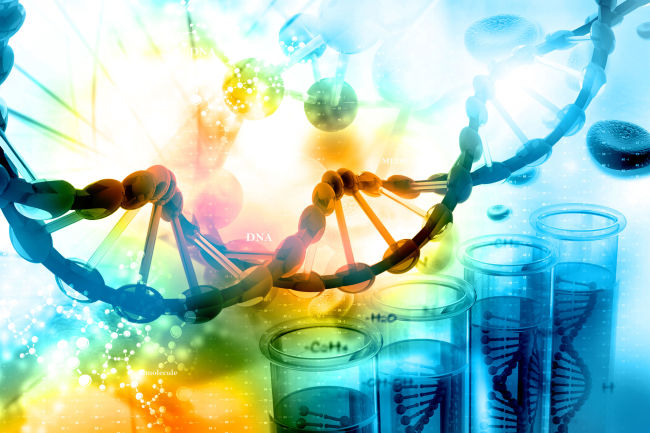The Korea Herald is publishing a series of articles on the alarming state of the country’s economy and the challenges to be addressed. This is the fifth installment. -- Ed.
Faced with the continued slowdown of its manufacturing sector, South Korea is eyeing new growth in the field of biotechnology, a promising industry expected for a sharp growth in the years ahead.
Biotechnology broadly refers to the use of genetic engineering and molecular biology to modify living cells to produce novel substances that perform new functions. Its biggest applications are in “red biotechnology” -- the development of complex drugs based on living cells, proteins, blood components and other biochemicals.
The Korean government has set medical biotechnology, particularly new drug development, as a key priority, investing 2.38 trillion won in the local biotech sector in 2015, according to the Korea Biotechnology Industry Organization.
 |
(123RF) |
Despite its potential, experts say Korea’s biotech sector faces many hurdles to growth, including risks and failures associated with new drug development, immense costs of research and development as well as insufficient workforce trained in the life sciences.
Korea was recently reminded of the difficulties of new drug development through a case involving Hanmi Pharmaceutical, a pioneering local drugmaker that has successfully developed multiple new drugs and licensed them out to global pharmaceutical firms.
In September, Hanmi announced that its partner Boehringer Ingelheim terminated a $730 million licensing deal it had entered with Hanmi over a new lung cancer therapy back in July 2015, after a patient died of the drug’s side effects during the drug’s phase 2 clinical trials overseas.
Hanmi’s shares plunged by more than 18 percent on the day of the announcement. In addition to the apparent financial losses, the incident served as a humble reminder to Korean investors and the public of just how difficult it is to develop a new, safe and effective drug that can be approved and brought to the market.
“Hanmi’s case sheds light on the immense difficulties of new drug development,” Shinhan Investment & Securities analyst Bae Ki-dal said in a research note on Hanmi’s setback.
According to a June 2016 report by the US Food & Drug Administration on clinical success rates, there is only a 9.6 percent likelihood that a new drug in phase 1 clinical trials will be approved for sale. The figure is just slightly higher, 15.3 percent, for drugs in phase 2 trials.
Moreover, a majority of developing drugs do not advance to the final clinical trial stage. Only 30.7 percent of developmental drug candidates in phase 2 trials advance to phase 3, according to the FDA’s report.
In other words, new drug development demands immense time, R&D, money and patience. It is “a game of probability with low chances of clinical development success,” as described by Eugene Investment & Securities analyst Kwak Jin-hee.
Given the high costs and difficulties of new drug development, some Korean firms have chosen to embark on the medical biotech business from a different entry point.
For instance, Samsung BioLogics is pursuing the contract drug manufacturing business -- making drugs on behalf of other biopharma firms -- while Celltrion and Samsung Bioepis are developing biosimilars -- cheaper, near-replicas of expensive biologic drugs that have lost patent protection.
However, whether it is new drug development or the production of existing biologic drugs and biosimilars, industry insiders agree on a key problem -- the lack of skilled employees specialized in the life sciences and biopharma production.
A 2015 KBIO survey of biotech companies on the current state of the biotech workforce showed that 37.6 percent of companies feel that there is a shortage of applicants with the right, needed skills and 33.9 percent said that applicants lack the right level of experience needed for a given position.
Eyeing this need, local universities and multinational companies have recently begun to take action, albeit on a small scale. It remains to be seen whether these efforts will help nurture Korea’s biotech workforce.
Last month, GE Healthcare and German life sciences firm Merck opened a new training center in Incheon’s Songdo district to provide technical assistance to companies looking to develop and produce new biologic drugs and technologies.
Throughout this year, Korean universities such as Incheon National University, Hanyang University, Dongguk University and Konkuk University have launched new academic programs focusing on field-based medical biotechnology such as biopharma production, product quality management, clinical trials as well as marketing and sales.
By Sohn Ji-young (
jys@heraldcorp.com)








